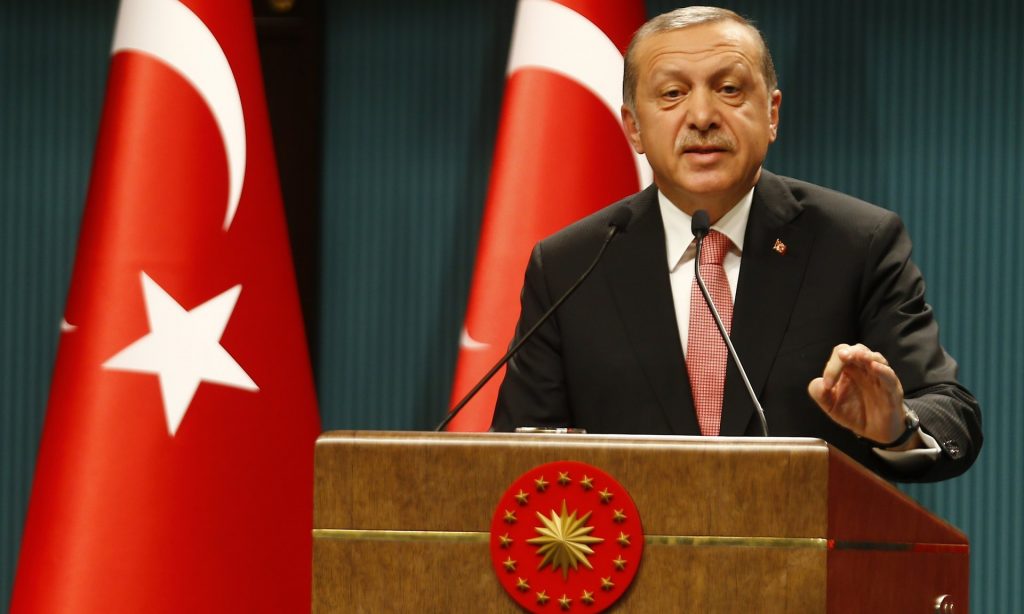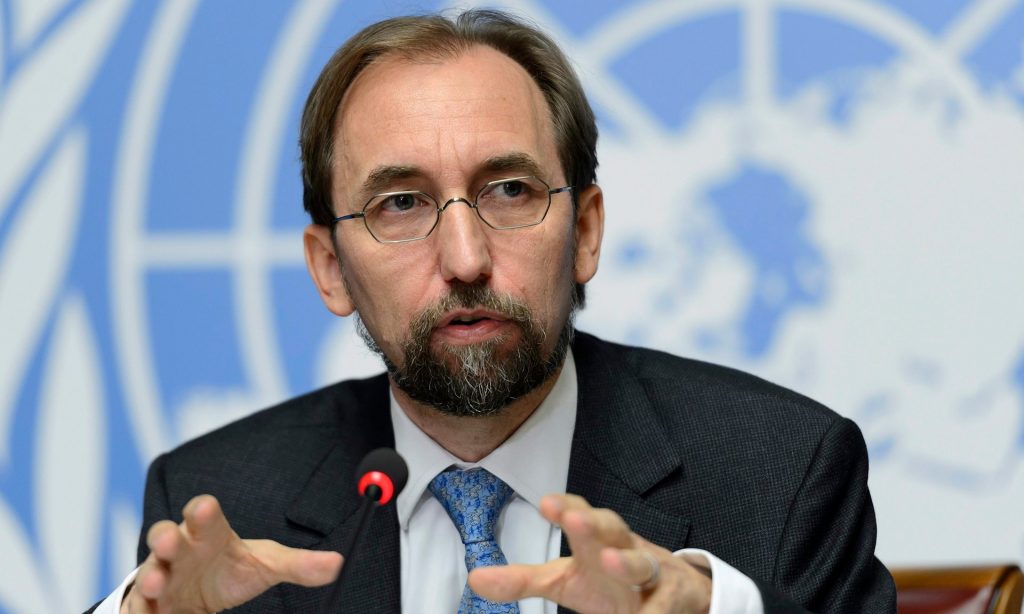
Photograph: Umit Bektas/Reuters
Turkey on Thursday entered the first full day of a state of emergency declared by the president, Recep Tayyip Erdoğan, in the aftermath of last week’s coup attempt. The decision, announced in a televised press conference on Wednesday night, came after marathon meetings of the country’s national security council and the cabinet in Ankara.
Article 121 of the Turkish constitution, which regulates the state of emergency, requires parliament to give its consent to the decision and sets a maximum period of six months for it. It allows the cabinet under the chairmanship of the president to issue decrees that have the force of law on matters relating to the state of emergency.
“State of emergency is not against democracy, the rule of law and freedom,” Erdoğan said, adding that the country would not compromise on democracy.
The announcement will raise further concerns about restrictions on freedoms and rights in Turkey, which was shaken by a coup attempt on Friday that saw tanks enter the streets of Ankara and Istanbul and very nearly ousted the Turkish government.
It also comes as concerns grow over the scale of the ensuing crackdown that has targeted thousands of judges, civil servants, teachers, police officers and soldiers, and amid widespread fears of growing authoritarianism on the part of Erdoğan.
Turkish officials have insisted that the measures are necessary to preserve security and stability as the country grapples with the coup’s aftermath and investigates how it came about.
“The country and our democracy came under attack on Friday evening,” a senior Turkish official said following the announcement. “Over the past year a number of countries including France and Belgium had to make similar decisions.”
Erdoğan said the move was necessary to allow “swift and effective” measures against the Gülen movement, which he claims was behind the uprising, and to “eliminate the threat against democracy”. Europeans “have no right to criticise” the decision to enforce a state of emergency, he said.
The meeting between Erdoğan and senior staff at a national security summit in Ankara was the first time they have come together since the attempted putsch, which killed more than 200 people and wounded thousands, and which the government has blamed on followers of Fethullah Gülen, an exiled cleric in Pennsylvania.
Some 60,000 bureaucrats, soldiers, policemen, prosecutors and academic staff have come under the government’s spotlight, many of them facing detention or suspension over alleged links to the Gülenist movement and the coup plotters.
Earlier on Wednesday, the government had imposed a work travel ban on academics, which, a senior Turkish official said, was a temporary measure as accomplices of the coup plotters in universities were a potential flight risk.
All 1,577 deans of public and private universities in Turkey submitted their resignations at the government’s urging. This came after 20,000 teachers and administrators were suspended from their jobs as a result of the coup, along with 6,000 soldiers and more than 2,700 judges and prosecutors, and dozens of senior generals accused of involvement in the coup.
The scale of the crackdown has prompted the UN high commissioner for human rights, Zeid Ra’ad al Hussein, to express “serious alarm”, urging the Turkish authorities to respect human rights in the aftermath of the coup.
He said: “In the aftermath of such a traumatic experience, it is particularly crucial to ensure that human rights are not squandered in the name of security and in the rush to punish those perceived to be responsible.
“The mass suspension or removal of judges is cause for serious alarm, and reports that many have been subject to detention orders also raises concerns of arbitrary detention.”
Turkey also blocked access on Wednesday to the website WikiLeaks, which on Tuesday night published a tranche of thousands of emails of members of the ruling Justice and Development party (AKP).
The emails date from 2010 to 6 July this year and were obtained before the attempted coup. The date of their publication was brought forward “in response to the government’s post-coup purges”, WikiLeaks said on its website, adding that the source of the emails was not connected to the coup plotters or to a rival political party or state.
Turkey’s telecommunications board said an “administrative measure” had been taken against the website – the term it commonly uses when blocking access to sites. Turkey routinely uses internet shutdowns in response to political events, which critics and human rights advocates see as part of a broader attack on the media and freedom of expression.

Photograph: Martial Trezzini/EPA
A senior Turkish official said the ban was imposed on the WikiLeaks content because it constituted stolen or illegally obtained information.
Turkey says the attempted putsch on Friday, which saw tanks, fighter jets and helicopters piloted by officers and elite troops, including from the country’s equivalent of Navy Seals, and which came close to shooting down Erdoğan’s plane, was planned and executed by followers of Gülen and allies within the officer corps.
The rebel soldiers also attacked the Ankara police headquarters and the national intelligence service facilities, in an apparent attempt to seize the director of intelligence, Hakan Fidan.
Intelligence sources say many of the officers who took part in the coup were on a list of some 600 high-ranking military personnel accused of Gülenist ties that was submitted by the national intelligence service to the army’s headquarters last Tuesday. The officers were facing dismissal in August during the annual appointments and promotions in the Turkish military.
Fresh details emerged on the coup attempt on Wednesday, with testimony published in the newspaper Hurriyet by a senior general who said the coup plotters attempted to persuade General Hulusi Akar, the chief of staff taken hostage during the putsch, to back the rebels, but he refused. A Turkish official confirmed the authenticity of the testimony.
Senior army commanders publicly condemned the coup as it was unfolding, a stance that Turkish officials credit with playing a key role in its failure.

